You Don't Need a Unique Startup Idea to Succeed
Struggling to find a genius fresh idea for your startup? You're not alone. When you're a first-time founder, you often prioritize finding startup ideas that make your heart beat faster. But it's often leprechauns' gold rather than a unicorn you're looking for. Shiny at a first glance, but treacherous and in the end quite worthless. Whether it's good news for you or a reason to sit in the dark corner for a while contemplating your life choices, a bright, fresh idea is not necessary for a successful business. Why? Let's see.
If you prefer to watch videos instead of reading, check out our YouTube video dedicated to the same issue. Keep in mind we add some fresh insights and examples in the article!
1. Any Idea is Going to Evolve
The gap between what founders think users need and what users actually need is unavoidable.
Let's say, in your head it goes like this: you come up with some really cool startup business ideas, create the product, launch it, people love it, everyone's happy. It's your breakthrough. Right?
No. The true breakthrough happens later. Sometimes – much, much later. It's when you see and test how your idea meets the real world.
Let's take Eleken's journey as an example. We started as a one-stop-shop for design and development. Then we cut off the development part. Then we ditched everything beyond UI/UX design for SaaS startups. And we ended up working on the subscription model exclusively.
How did it happen? Well, after the years on the market we became industry experts. And during this time, we got a real feeling of what the market and our clients need. It was simply impossible to get this feeling before we started our journey. So, the initial idea and where we ended up are two different things. But we're happier for it.
Another case in point is Slack. One of the fastest growing enterprise software ever, it started as a tool for internal communication for a MMORPG game. The game failed quite spectacularly. Stewart Butterfield, the founder, saw that the game was failing. Instead of trying to ride the horse that was clearly dying, he used the remaining money to start developing Slack as a business communication tool. And it became a game-changer we all know and use now.
2. Tech Startup Ideas Don't Need to Be Innovative to Be Successful
Artists and designers know very well: there's nothing new under the sun. That's why there's so much advice on how to steal like an artist.
What you create, you just borrow and refine extremely well. Many businesses have succeeded not by being the first or being the most innovative. Instead, they can just execute someone else's SaaS ideas really well. Or improve on them. Or, let's be honest, just get the timing and marketing strategy just right.
Need some historical proof? Let's see.
Coca-Cola didn't invent soda or cola. But they did perfect a formula. And they had a stellar marketing strategy that turned their brand into a global phenomenon.
Online retail existed well before Amazon. Why did it become such a giant? To name a couple of reasons, through excellent customer service, a vast range of products, and efficient delivery systems.
Coffee shops have been around literally for centuries before Starbucks. Starbucks coffee many consider to be, well, mediocre. But the brand provided the customers with Experience, with capital E. It posed itself as an alternative to going to a movie with a loved one instead of going to another coffee shop.
And that’s what we see working with our successful clients as well.
Clientjoy (ex-Gridle), for example, is not the first CRM app under the sun. But they came to Eleken with a clear vision to become a CRM perfectly fitted to the needs of small agencies and freelancers. Some time later, the product raised a six-figure pre-series A round.

So, customer service, marketing strategy, the right timing or positioning, or even the vibe can outweigh the shiny new unicorn startup ideas.
3. Fastest Growing SaaS Apps Are Not Innovative
Many of the fastest-growing apps are not about groundbreaking micro SaaS ideas but about execution and addressing existing market needs. Let's look at some examples from a recent list of top-growing SaaS companies in 2024:
Databricks
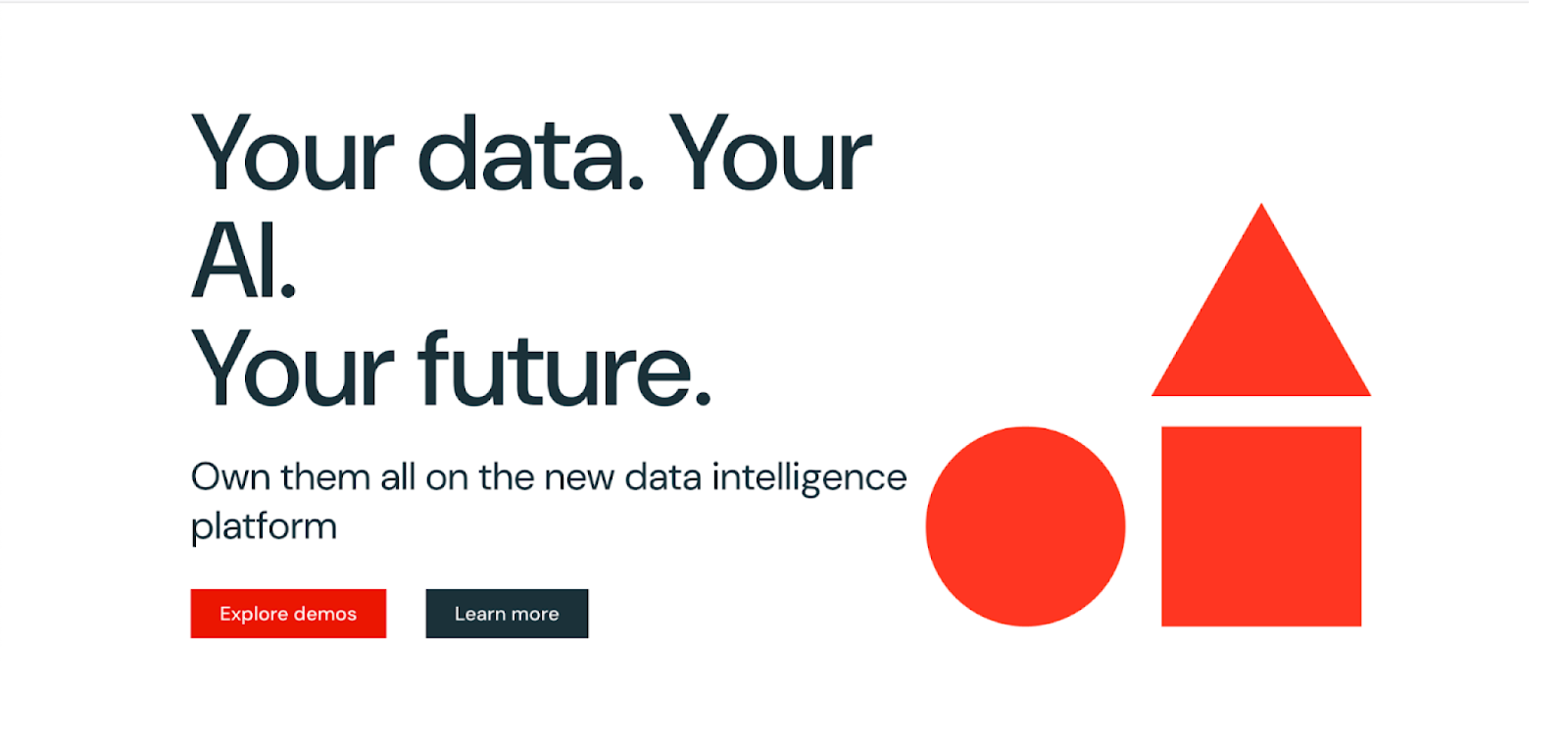
Databricks unifies data within a company with their Databricks Lakehouse, combining data lakes and data warehouses to enable data, analytics, and AI integration. This allows businesses to extract true insights from their data.
Why they are successful: Databricks isn't introducing a new startup idea but excels in performance and usability. Their platform provides a comprehensive and efficient way for large enterprises to manage and utilize their data. Companies like CVS Health, Shell, Conde Nast, and HSBC leverage Databricks for their ability to unify data effectively, making it more accessible and actionable. The combination of high performance, user-friendly interface, and robust integration capabilities has driven their explosive growth.
ClickUp
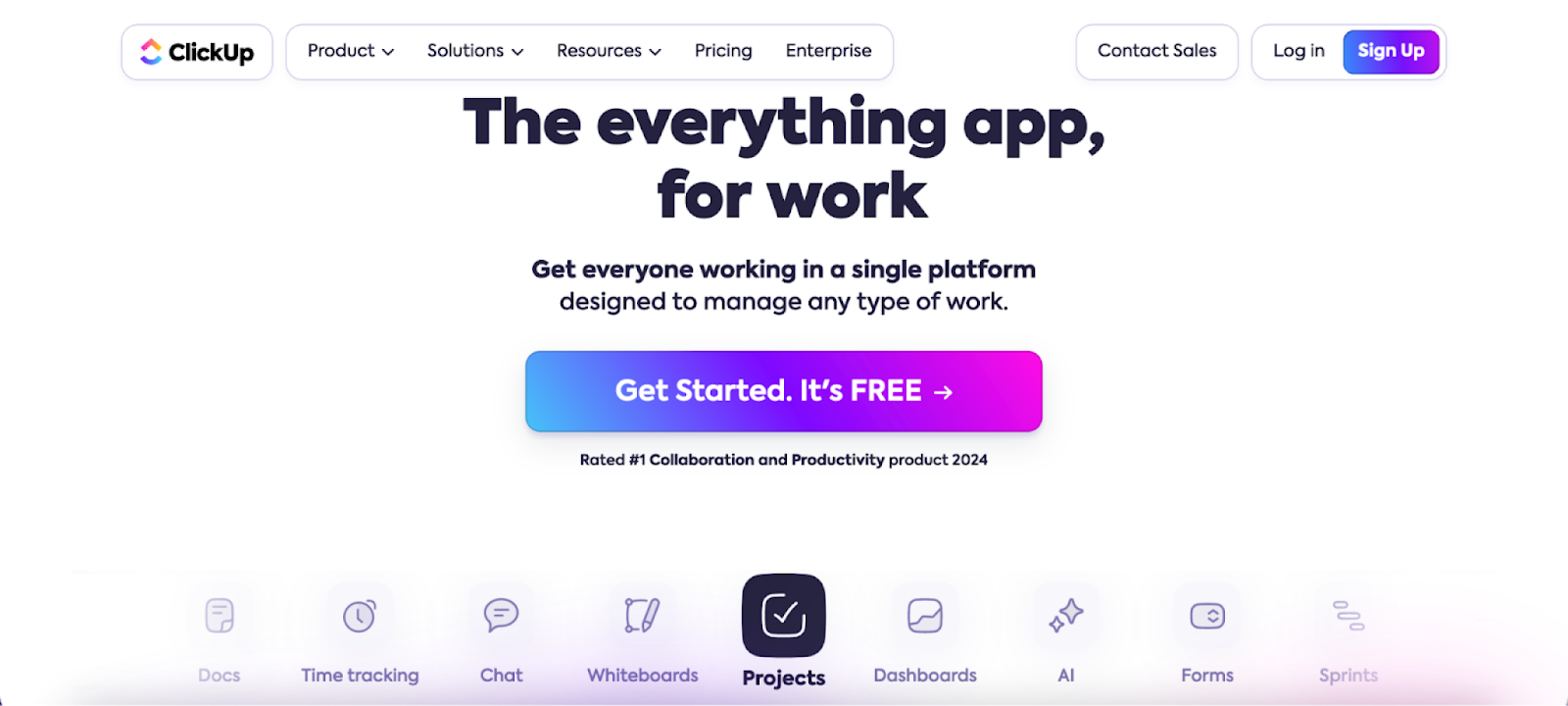
ClickUp is a workplace productivity app. Yes, another one. You already see where this is going, right?
ClickUp integrates documents, chats, lists, goals, and tasks into one platform and serves as a project management tool. ClickUp integrates with tools like Asana, Trello, Jira, and Airtable.
Why they are successful: ClickUp obviously didn't invent productivity, project management tools or some other shiny software startup ideas but refined the user experience by creating an all-in-one platform. Their focus on seamless integration with other popular tools and a user-friendly interface has made them indispensable to many teams. By centralizing multiple functionalities, ClickUp has significantly improved efficiency and productivity, leading to their rapid growth and high valuation.
Lemlist
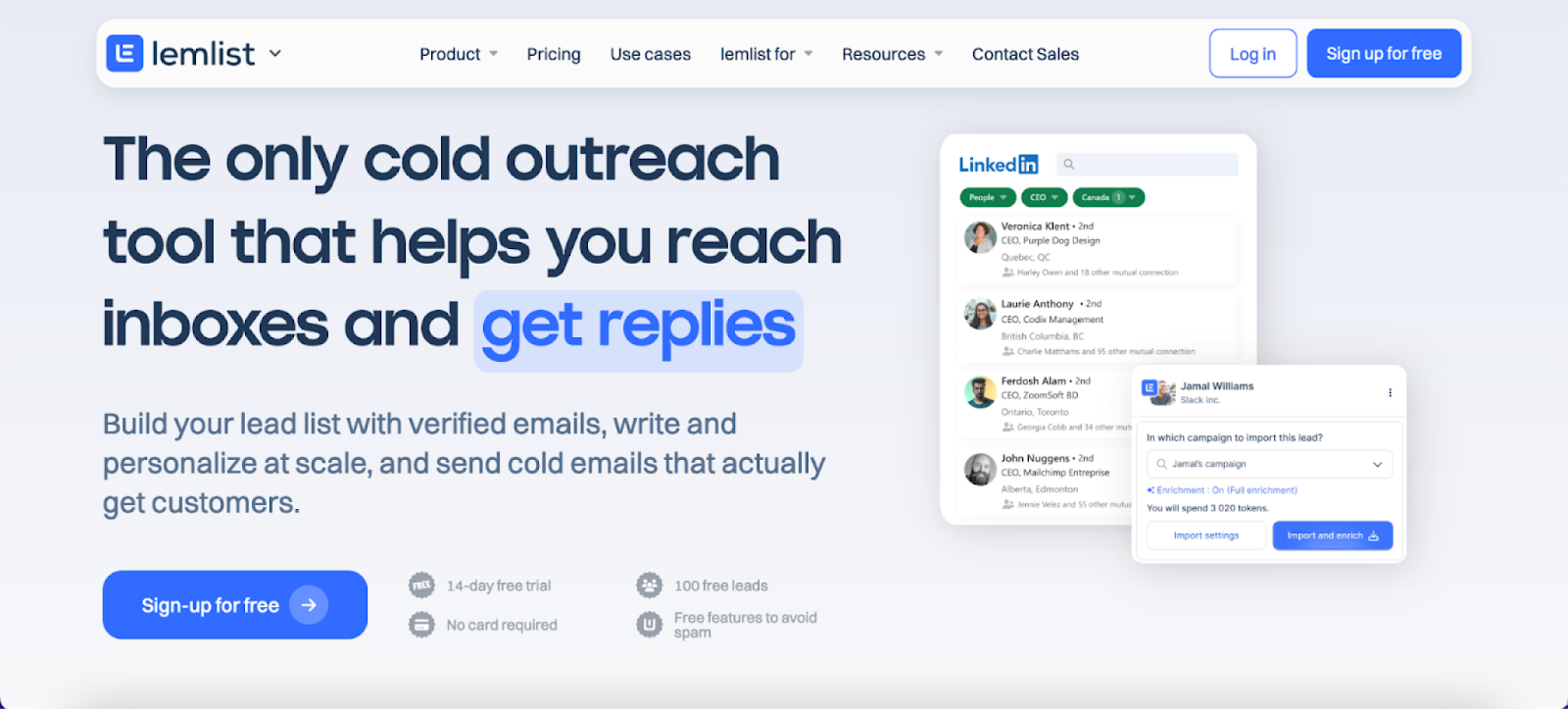
Lemlist is an email outreach platform designed to improve email open and engagement rates. It offers direct integrations with email providers, CRMs, project management software, and conferencing tools.
Why they are successful: Lemlist focuses on optimizing an existing process rather than introducing a new concept. By enhancing email outreach through better engagement and integration capabilities, Lemlist has provided a tangible value that resonates with businesses. Their success, reaching $20m in ARR without any prior funding, highlights the importance of executing a well-known idea exceptionally well.
Calendly
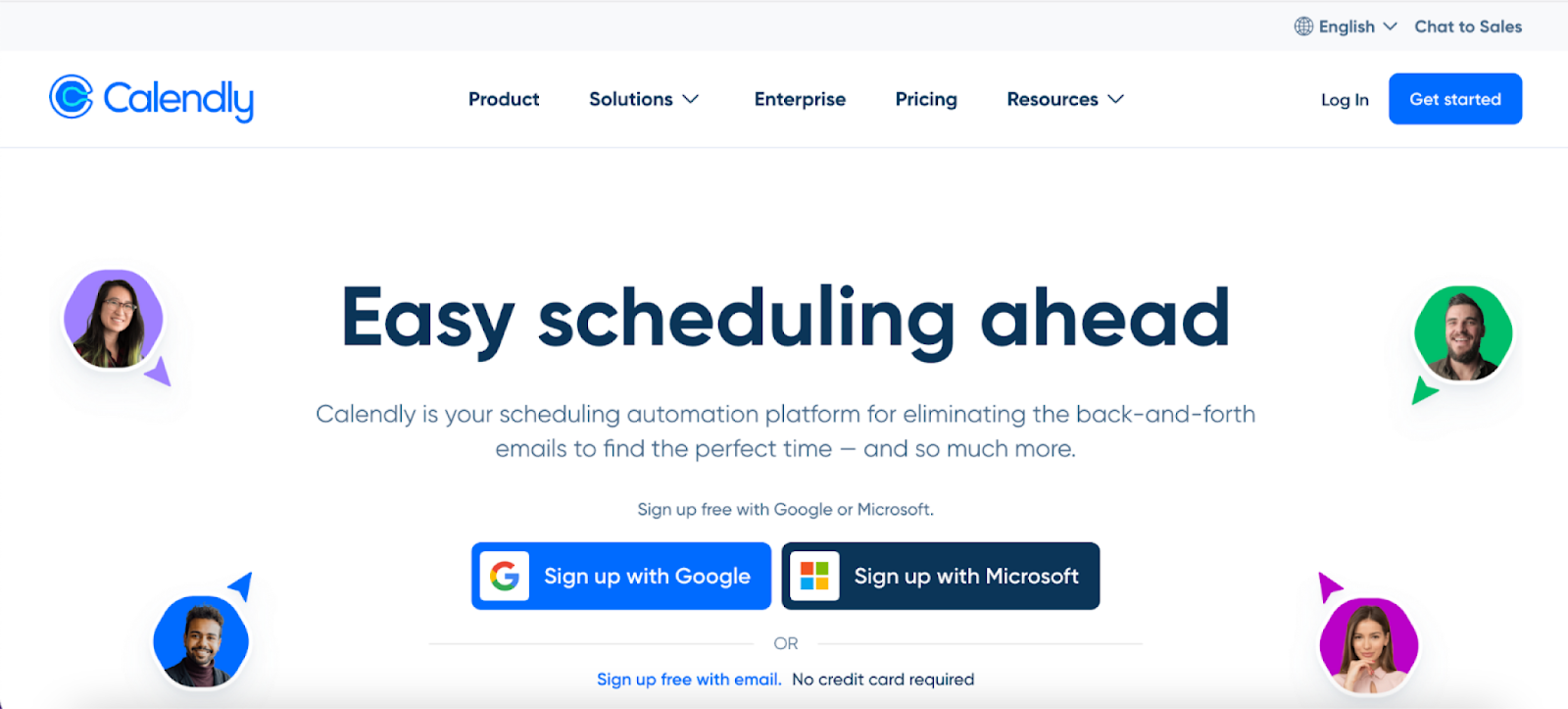
Calendly is a digital calendar that allows enterprise sales teams and corporate teams to book appointments and schedule meetings efficiently, reducing the back-and-forth typically involved in scheduling.
Why they are successful: Calendly didn't invent scheduling but streamlined the process with a user-friendly interface and robust functionality. By focusing on ease of use and eliminating the friction in scheduling meetings, Calendly has attracted millions of users worldwide. Their ability to simplify a common task and integrate seamlessly into users' workflows has driven significant adoption and growth.
Linear
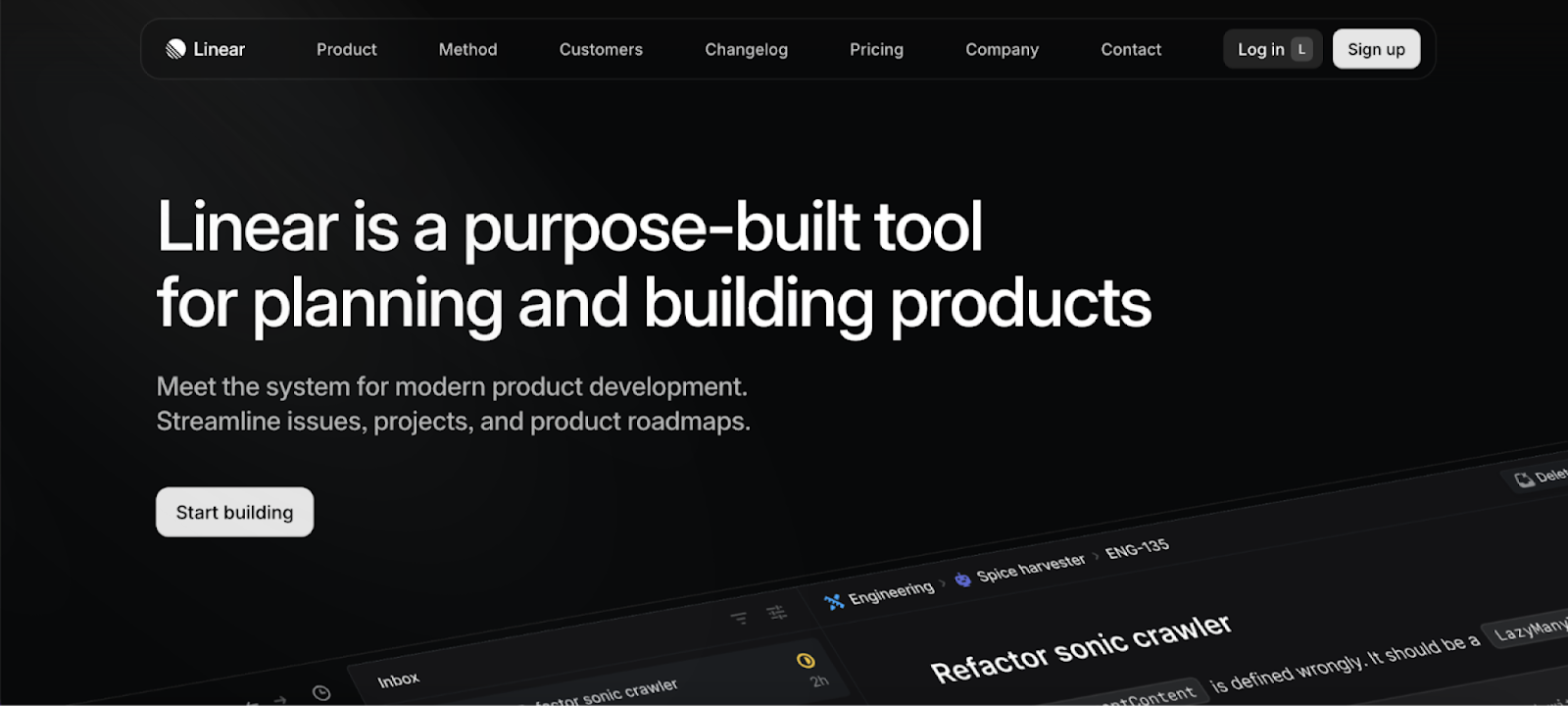
Linear is an issue-tracking tool designed for modern software development teams. It focuses on providing a streamlined, efficient, and visually appealing user experience, aiming to simplify the often cumbersome process of tracking and managing development issues.
Why they are successful: Linear's success is also not rooted in innovation but in exceptional execution and a deep understanding of their niche. The founders recognized the widespread frustration with existing tools like Jira. Instead of reinventing the wheel, they focused on creating a tool that developers would love to use, emphasizing design, speed, and simplicity. Linear’s approach was to perfect the user experience by integrating features that were already familiar but executing them in a way that significantly reduced friction and enhanced productivity. They built a strong product narrative that resonated with their target audience, emphasizing craft, taste, and flexibility over rigid, data-driven methodologies. This cultural alignment created a loyal user base that felt a sense of identity and belonging with Linear.
If you're interested in a more detailed dive into Linear's story, read our case study. For now, I think, we made a point, so let's move on to the next reason.
4. A Seemingly Good Idea May Be a Risky Quicksand
If you're an active social media user, and especially if you've been on Twitter (I'm sorry, X. Unfortunately, you can see I've been there definitely for far too long) for long enough, at some point in your life you probably thought: social media is broken, I could do better.
In theory, you probably could've. A lot of people are frustrated with social media these days, and they'd likely want an alternative.
But, if that's such a good idea, why no bright new startup emerged to finally dethrone Mark Zukerberg or Elon Musk?
The answer is, quite a lot probably tried and failed. The entrance bar is so high hundreds of startups died trying to reach it. And you don't want to end up in that pile of virtual corpses.
So, if a problem you've discovered is too obvious, you'd better leave it in peace. Even if its realization could definitely solve a lot of people's pains.
There's another aspect to that.
You might try to solve a problem no one actually cares about.
YCombinator lists this as the first typical mistake many new founders make. Instead of looking for a real problem people do want to solve, they come up with a seemingly cool solution and then try to apply it to something. When you work this way, there's a high chance you will find some problem. But there's also a higher chance that it's not actually a problem that people deeply care about. And if that's the case, they won't care about your solution either.
5. It's Hard to Sell New SaaS Startup Ideas
If you came up with something really, really original, there's a risk there's simply no demand for it. So, you will have to create that demand yourself before you can sell the idea to the users.
The thing is:
People hate new things even if they work better.
Most people are quite set in their ways. They don't fall in love easily with innovative products. Yes, even if they solve their problems better. You have to explain first how the new thing works and why users need it.
If "do nothing" seems like a viable alternative to using your product, you'd have to sell the problem first – and only then – the solution.
But market education is expensive and time-consuming. You're going to waste a lot of resources just explaining to people why they need your new product. This can slow down your growth and burn through your budget.
Even worse, people also might not be ready for your super new product yet. Even if they'll be hyped for it in a few years. Smartphones existed before the iPhone – it's just no one used them.
If it's not enough, remember the investors are people too. And they are hesitant to put money into something truly new and untested. Instead, they prefer to invest in industries or business models they understand. Just think of the endless Hollywood sequels if you need any more proof.
Moreover, as you can imagine from this:
To make an innovative idea work, you'll need significantly more resources.
Innovative startup ideas often require a significant amount of resources to develop, market, and scale. You need to invest in research and development to ensure your product works as intended and meets the needs of your target audience. Then, there's the cost of educating the market about your new solution, which can be a long and expensive process. Additionally, you may face higher risks and uncertainties, as innovative products often encounter unforeseen challenges and resistance from users accustomed to existing solutions. This combination of high costs and risks means that making an innovative idea work demands substantially more resources compared to entering an existing market with a refined product.
6. Effective Execution Beats a Brilliant Idea Every Time
Even if your ideas for a tech startup are revolutionary, poor execution can doom it. The tech world is littered with examples of innovative ideas that failed because they were not executed properly. There's no reason to spend months agonizing over an idea you won't be able to fulfill. The reality is that a more straightforward concept, well-executed, will consistently outperform a brilliant idea with poor execution.

Why execution matters more than the idea?
- User experience. Any SaaS business ideas, no matter how brilliant, will fail if the user experience is poor. If your product is difficult to use, unreliable, or doesn't meet the needs of its users, it won't gain traction. Ensuring that your product is user-friendly and functions as intended is crucial.
- Market fit. A well-executed idea will be better positioned to adapt to market needs. It's essential to focus on understanding your target audience and tailoring your product to solve their specific problems effectively.
- Operational efficiency. Proper execution involves efficient operations, from product development to customer support. Streamlining your processes ensures that your business can scale smoothly and sustainably.
- Speed to market. Speed is often a critical factor in the success of B2B SaaS ideas. Being able to bring a product to market quickly can provide a competitive edge. Delays due to poor execution can result in missed opportunities and give competitors the chance to overtake you.
- Resource management. Efficient execution involves prudent management of resources. This includes not only financial resources but also time and talent. Misallocation of resources can lead to burnout, financial strain, and ultimately, failure.
Need a proof? If you're old enough, you probably remember Yahoo. But when did you use it the last time? Google was not the first search engine; Yahoo had been dominating the market. However, Google's superior execution, focusing on speed, relevance, and a clean user interface, allowed it to surpass Yahoo and become the world's leading search engine.
While brilliant ideas for startups can be a great starting point, it's the execution that determines success. Focus on delivering a high-quality product, understanding and meeting market needs, and efficiently managing your resources. By doing so, you can turn even simple and small business startup ideas into a thriving business.
7. Waiting For Perfect Technology Startup Ideas Means Never Start
Our last reason is more about psychology than market or development – but it's no less important.

Many aspiring entrepreneurs fall into the trap of waiting for perfect SaaS app ideas, believing that a flawless concept will guarantee success. However, this mindset can lead to paralysis by analysis, where the fear of imperfection prevents you from ever starting. The reality is that no idea will ever be perfect, and waiting for that elusive "perfect" concept means you might never begin your entrepreneurial journey at all.
Instead of waiting, start with viable SaaS product ideas and be prepared to iterate and improve upon them. The most successful startups often began with a simple, even imperfect idea that evolved over time through feedback and market adaptation. The act of starting, learning, and refining your approach is far more valuable than endlessly searching for perfect ideas for SaaS.
Consider the story of Instagram, which started as a location-based check-in app called Burbn.

The founders quickly realized that users were primarily interested in the photo-sharing feature, so they pivoted and focused exclusively on that aspect. The result? Well, we all know it, for better or for worse.
Conclusion
To launch a successful business, you don't have to come up with genius ideas for SaaS business. You just have to get everything else right.
If you need help with designing your MVP, drop us a line. At Eleken, we have years of experience of designing SaaS apps that meet the user needs, secure investments, and start growing. After all, as we've said, the road to success is not through a brilliant idea but rather through stellar execution. And we're experts in that.














